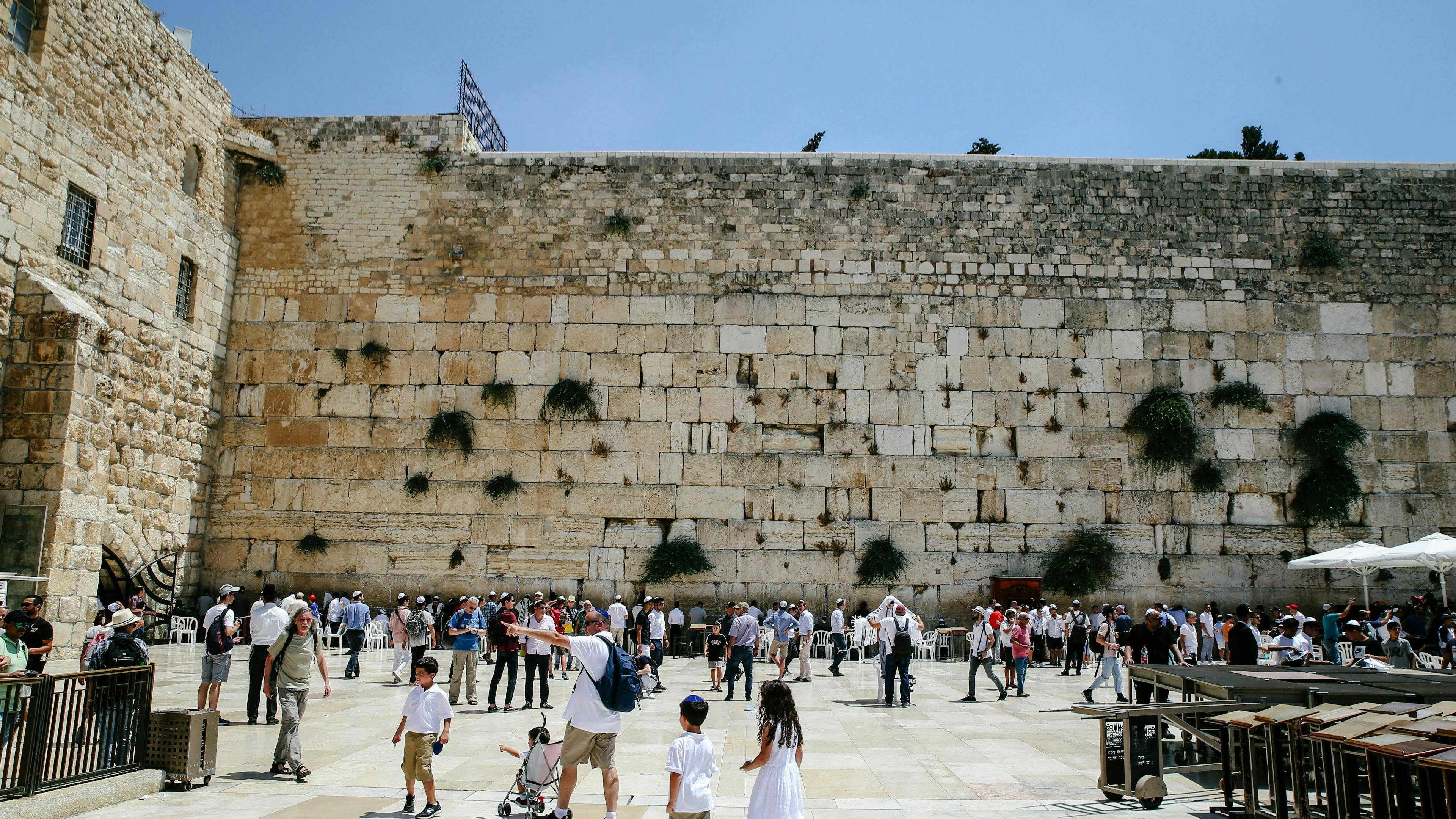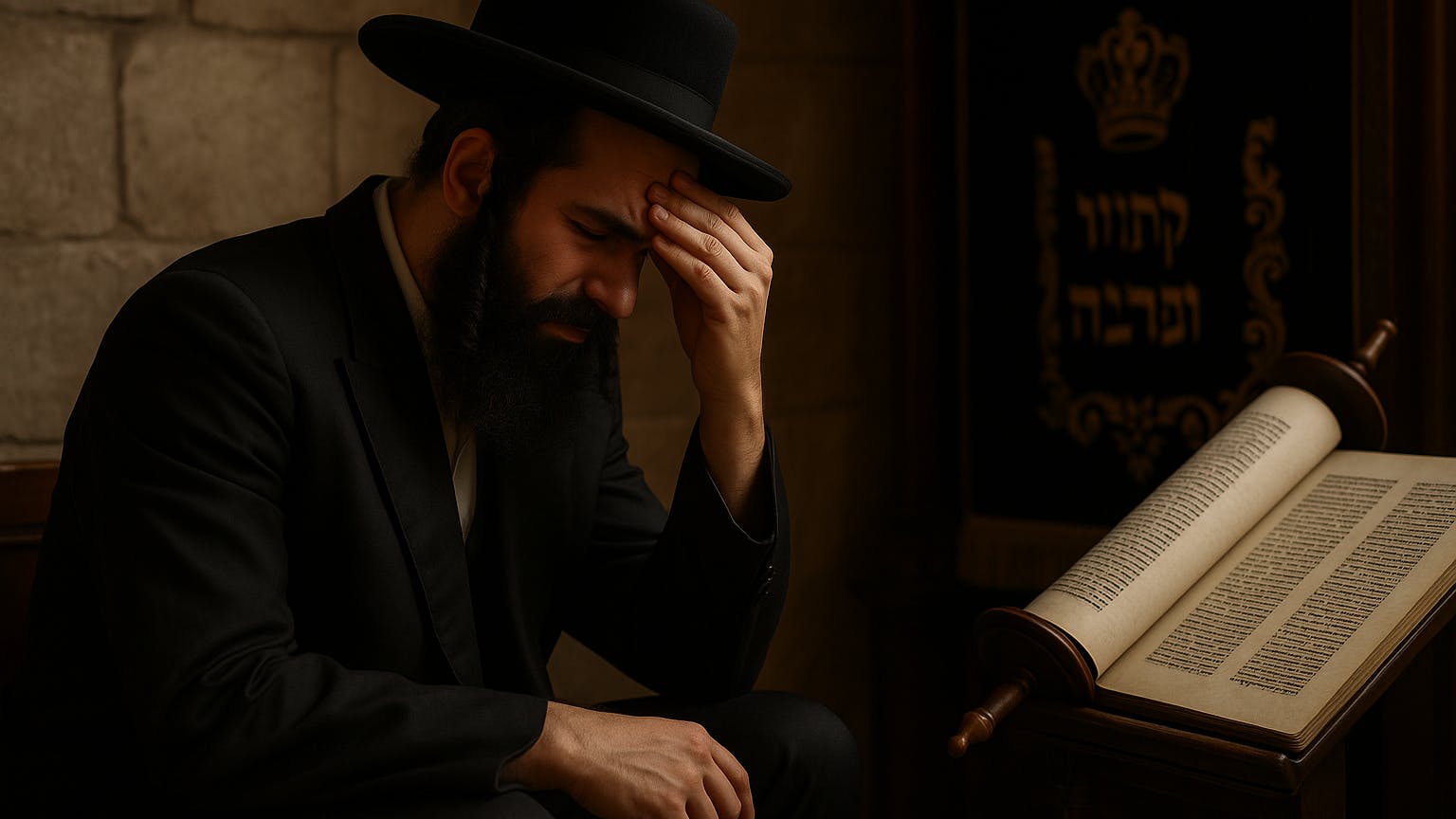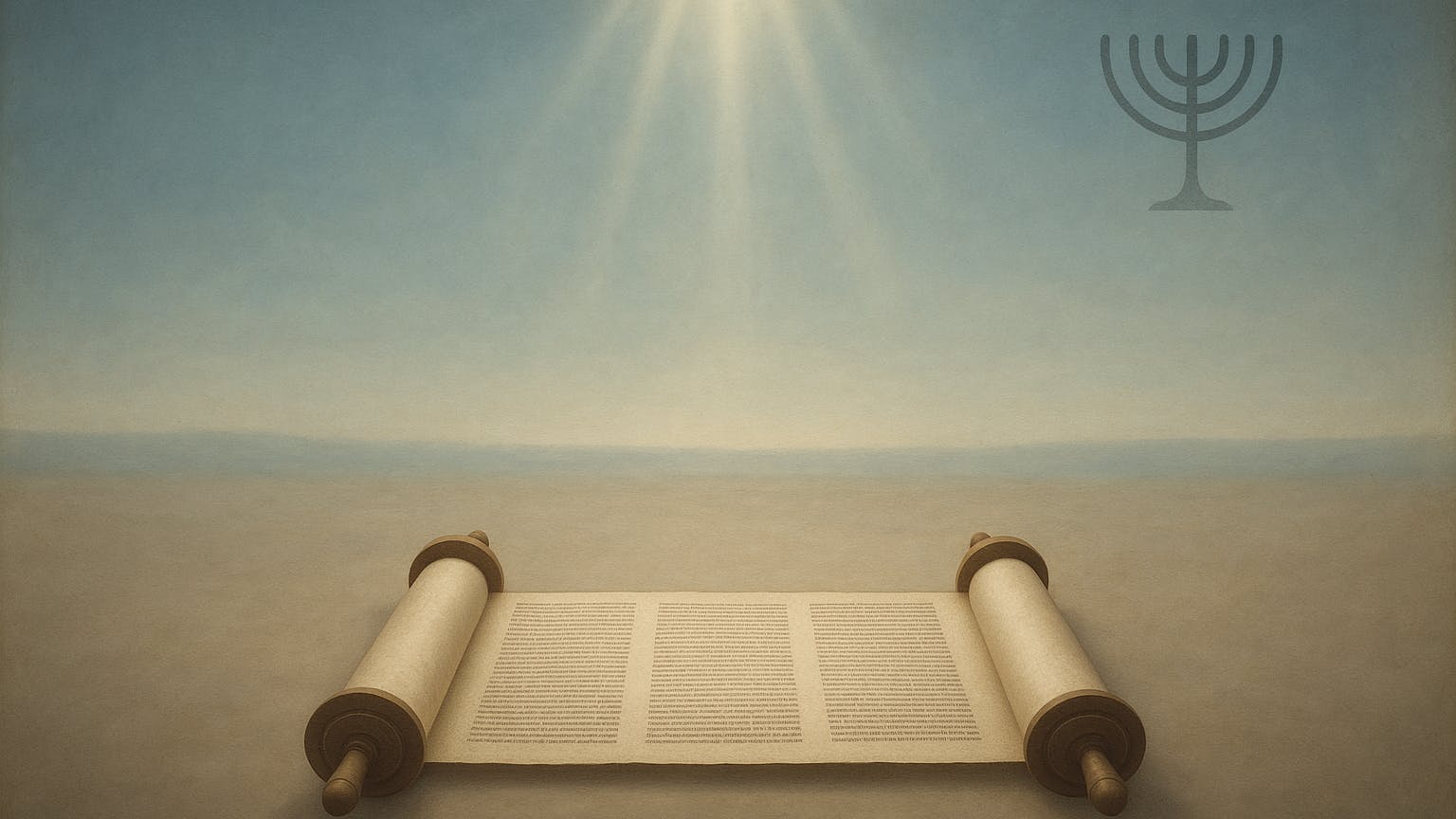With the somber anniversary of October 7th taking place within the “days of awe” between the start of Rosh Hashanah on October 2nd and Yom Kippur which ends on October 12th, there is an extra sorrow added to national days set aside for corporate repentance. A year on from those tragic events, suffering still marks the daily course of Israeli national life, along with fear and violence, as fighting in Gaza continues, threats increase in the north increase, and the possibility of a full-scale war with Iran looms overhead.
Given the various concerns, emotions, and religious sentiment bound up in these days, it is possible that some people will simply conclude that these are days of sadness and sorrow without purpose, as they grow weary of worldly difficulties. But even the secular-minded Israeli can feel the burden of guilt upon his conscience somewhat as he prepares for Yom Kippur. Thus he will ask forgiveness for wrongs he committed during the previous year, and prepare for the day of fasting, which is considered as corresponding to the Biblical day of atonement.
We read of this in Leviticus 16:29-31:
Leviticus 16:29-31
“And this shall be a statute for ever unto you: that in the seventh month, on the tenth day of the month, ye shall afflict your souls, and do no work at all, whether it be one of your own country, or a stranger that sojourneth among you: For on that day shall the priest make an atonement for you, to cleanse you, that ye may be clean from all your sins before the Lord. It shall be a sabbath of rest unto you, and ye shall afflict your souls, by a statute for ever.”
While other times and seasons of the year would be set aside for repentance, the purpose of the Day of Atonement appointed in the Torah was to impress upon the mind of the whole nation the need for repentance all year round. The Day of Atonement was instituted by God via his servant Moses within the context of the ceremonial and civil life of the nation of Israel.
Thus Maimonides says in the Mishneh Torah: עַל פִּי שֶׁהַתְּשׁוּבָה וְהַצְּעָקָה יָפָה לָעוֹלָם. בַּעֲשָׂרָה הַיָּמִים שֶׁבֵּין רֹאשׁ הַשָּׁנָה וְיוֹם הַכִּפּוּרִים הִיא יָפָה בְּיוֹתֵר וּמִתְקַבֶּלֶת הִיא מִיָּד שֶׁנֶּאֱמַר (ישעיה נה ו) "דִּרְשׁוּ ה' בְּהִמָּצְאוֹ" – "Even though repentance and calling out [to God] are desirable at all times, during the ten days between Rosh HaShanah and Yom Kippur, they are even more desirable and will be accepted immediately as [Isaiah 55:6] states: "Seek God when He is to be found." (Mishneh Torah, Sefer Hamada, Teshuvah, Chapter 2). The implication of Maimonides’ words here is that God will not accept repentance immediately at other times of the year, but that such is merely something commendable in man that he should do.
Maimonides ascribes a time in which God will be found, implying that there are other days when God may not be found. However, we know from Psalm 95 that God would have us to repent this very day:
Psalm 95
“Today if ye will hear his voice, harden not your heart, as in the provocation, and as in the day of temptation in the wilderness.”
We can say that this is true even of those who were outside of Israel’s ceremonial observances, such as the Ninevites whom we read of in Jonah 3:6-9:
Jonah 3:6-9
“For word came unto the king of Nineveh, and he arose from his throne, and he laid his robe from him, and covered him with sackcloth, and sat in ashes,”
Yet what happens, practically speaking, among many rabbinic Jews at Yom Kippur is that – not considering repentance throughout the year – the issue comes to the forefront of their mind mostly just at that time of year. So they perform many tasks and say a multitude of prayers, hoping to secure being written in the “Book of Life” according to Judaism for another year. Then some days afterwards, they forget and return to their selfish ways. But what use is an attempt to clean up one’s life briefly, without a change of heart, indeed a new heart? And in many cases, the mind is not even affected by a sense of sin and guilt; instead, it is possible to go through the religious motions of Yom Kippur thinking this is enough to please God. Yet the God of Scripture is not pleased by mechanical and superficial gestures.
We may think of Christ’s words in Matthew 12:
Matthew 12
“When the unclean spirit is gone out of a man, he walketh through dry places, seeking rest, and findeth none. Then he saith, I will return into my house from whence I came out; and when he is come, he findeth it empty, swept, and garnished. Then goeth he, and taketh with himself seven other spirits more wicked than himself, and they enter in and dwell there: and the last state of that man is worse than the first. Even so shall it be also unto this wicked generation.”
Yom Kippur was intended by God to focus sinners’ minds upon their need for repentance and faith towards God. The sacrifices of that day were to point forward to the atoning death of the Jewish Messiah. Yet this has become distorted into something altogether different that cannot provide the atonement our conscience seeks. It all pointed forward to Messiah who died on the cross and fulfilled the true meaning of these ceremonies.
Yet as rabbinic Judaism developed in the centuries after Christ, it clung to the old institutions and distorted their meaning from their intended purpose, which was to point forward to the Messiah, who died around A.D. 33 at Passover, and rose again on the third day.
We all ought to turn from such distortions to God by trusting in the Messiah whom he sent according to Isaiah 53, Daniel 9, Psalm 2, 22, 110, 118 and other passages. This is " Jesus Christ, the Son of God, who died during the last of Daniel's 70 "weeks" (representing 490 years) in A.D. 33, was pierced in his hands and his feet in order to die for our sins, and rose again to life. -If you hear his voice, today is the day for you to repent and believe the gospel. Let us conclude with the words of Jesus Christ in the Gospel according to Matthew:
Matthew
“All things are delivered unto me of my Father: and no man knoweth the Son, but the Father; neither knoweth any man the Father, save the Son, and he to whomsoever the Son will reveal him. Come unto me, all ye that labor and are heavy laden, and I will give you rest. Take my yoke upon you, and learn of me; for I am meek and lowly in heart: and ye shall find rest unto your souls. For my yoke is easy, and my burden is light.”
More Topics
You might alsoo be interested in these topics.




